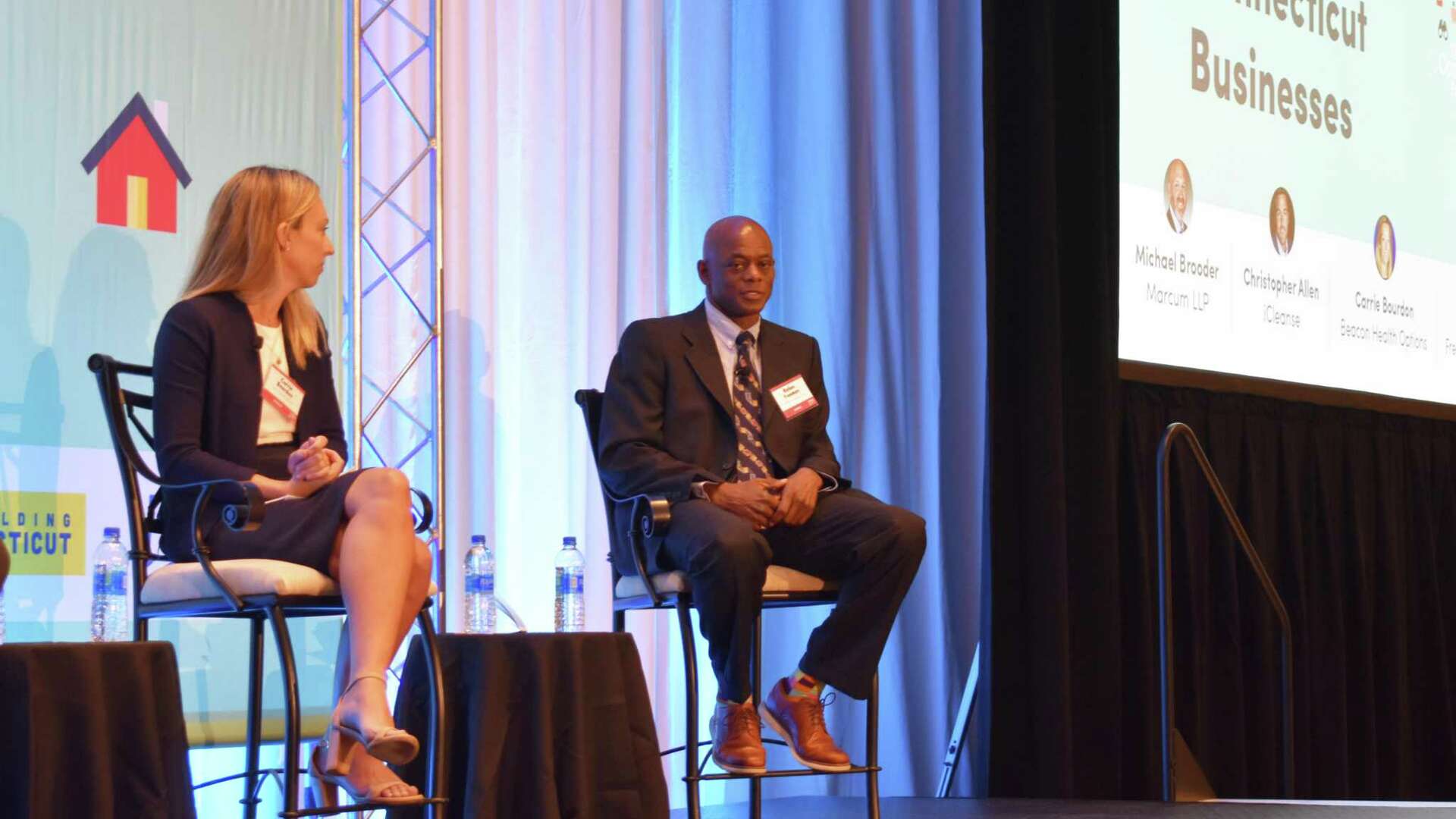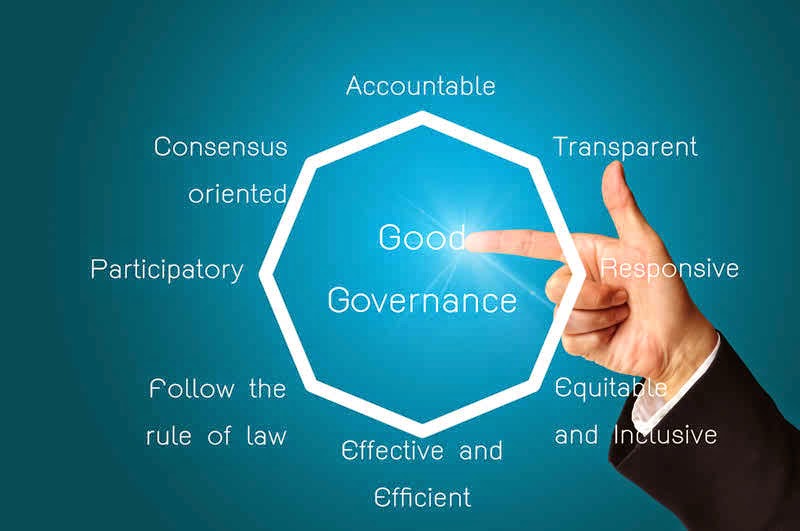Employment Law Conference – CBIA

Report on the 2025 Employment Law Conference: Advancing Sustainable Development Goals in the Workplace
The 2025 Employment Law Conference is designed to address critical contemporary workplace issues through the lens of legal compliance and corporate responsibility, with a significant focus on advancing the United Nations Sustainable Development Goals (SDGs). The event will provide strategic guidance on creating inclusive, just, and innovative work environments. Key themes include the ethical integration of artificial intelligence, the promotion of decent work, the reduction of inequalities, and the establishment of peaceful and just institutional practices.
Conference Agenda: A Framework for Sustainable and Equitable Employment Practices
7:30 AM: Networking Breakfast
8:30 AM: Opening Remarks
- Diane Mokriski, HR Counsel, CBIA
8:45 AM: Keynote Address
9:30 AM: Responding to Employee Accommodation Requests
- Rachel Kushel, Partner, Robinson+Cole
- Abby Warren, Partner, Robinson+Cole
This session will analyze the legal frameworks governing employee accommodation requests, including Title VII, the Pregnant Workers Fairness Act, the ADA, and state-level legislation. The discussion directly supports SDG 8 (Decent Work and Economic Growth) and SDG 10 (Reduced Inequalities) by guiding employers in creating flexible and supportive work environments that accommodate diverse employee needs, including those related to religion, health, and family. It also promotes SDG 5 (Gender Equality) by addressing specific provisions for pregnant workers, ensuring their continued participation in the workforce.
10:45 AM: Understanding Hate Crimes in the Workplace
- Moderator: Michael Bloom, Senior Director of External Affairs & Engagement, Connecticut Department of Emergency Services & Public Protection
- Nicholas Caez, Sergeant, Connecticut State Police Hate Crimes Investigative Unit
- Michael Dargan, Detective, Connecticut State Police Hate Crimes Investigative Unit
- Julia Stoner, Detective, Connecticut State Police Hate Crimes Investigative Unit
This panel will define hate crimes versus other forms of aggressive behavior and outline employer responsibilities in reporting and managing such incidents. The session is crucial for advancing SDG 16 (Peace, Justice and Strong Institutions) by empowering organizations to combat intolerance and contribute to a just society. By addressing discrimination and aggression, it also reinforces the principles of SDG 10 (Reduced Inequalities) and SDG 8 (Decent Work and Economic Growth), which call for safe and inclusive workplaces for all.
11:30 AM: How to Respond to Harassment & Bullying Complaints
This segment will differentiate between illegal harassment, bullying, and unprofessional conduct, clarifying the legal definition of a “hostile work environment.” It provides a framework for employers to establish fair and effective complaint resolution mechanisms, thereby strengthening institutional justice in line with SDG 16 (Peace, Justice and Strong Institutions). The focus on preventing harassment and protecting employees contributes directly to ensuring SDG 8 (Decent Work and Economic Growth) and fostering environments free from discrimination, as targeted by SDG 5 (Gender Equality) and SDG 10 (Reduced Inequalities).
12:30 PM: Networking Lunch
1:30 PM: Strategic AI: Innovation and Responsibility
- Bob DeLisa, Founder & CEO, Cooperative Systems
This presentation will focus on the strategic adoption of Artificial Intelligence in the workplace. It addresses organizational readiness, balancing innovation with security, and implementing “human-in-the-loop” strategies. The session aligns with SDG 9 (Industry, Innovation, and Infrastructure) by promoting the adoption of new technologies. Concurrently, it emphasizes ethical implementation and workforce preparedness, which are essential components of SDG 8 (Decent Work and Economic Growth), ensuring that technological advancement supports, rather than undermines, decent work for all.
2:15 PM: How Not to Get a Letter from a Plaintiffs’ Attorney
- Joshua Goodbaum, Partner, Garrison Law
This session offers a preventative legal perspective on common employer mistakes that lead to litigation, particularly concerning discrimination, retaliation, and wage and hour complaints. By educating employers on fair and lawful practices, this discussion promotes the development of effective and accountable institutions, a key target of SDG 16 (Peace, Justice and Strong Institutions). Adherence to fair labor practices is a cornerstone of SDG 8 (Decent Work and Economic Growth), and avoiding discriminatory actions is fundamental to achieving SDG 10 (Reduced Inequalities).
3:15 PM: Adjournment
SDGs Addressed in the Article
- SDG 5: Gender Equality
- SDG 8: Decent Work and Economic Growth
- SDG 9: Industry, Innovation and Infrastructure
- SDG 10: Reduced Inequalities
- SDG 16: Peace, Justice and Strong Institutions
Identified SDG Targets
SDG 5: Gender Equality
-
Target 5.1: End all forms of discrimination against all women and girls everywhere.
The article addresses this target through its focus on preventing workplace discrimination. The session “How Not to Get a Letter from a Plaintiffs’ Attorney” specifically mentions focusing on “discrimination, retaliation, and wage and hour complaints,” which are key to eliminating discriminatory practices against all employees, including women.
-
Target 5.2: Eliminate all forms of violence against all women and girls in the public and private spheres.
The conference agenda includes sessions on “How to Respond to Harassment & Bullying Complaints” and understanding hate crimes. Workplace harassment is a form of violence that disproportionately affects women, and by educating employers on how to identify and respond to it, the conference contributes to this target.
SDG 8: Decent Work and Economic Growth
-
Target 8.5: By 2030, achieve full and productive employment and decent work for all women and men, including for young people and persons with disabilities, and equal pay for work of equal value.
This target is central to the article. The session “Responding to Employee Accommodation Requests” directly addresses inclusion for persons with disabilities (“remote work for someone who can’t drive”) and mental health conditions (“reduced hours due to anxiety”). The mention of the Americans with Disabilities Act (ADA) and preventing “wage and hour complaints” further reinforces the commitment to decent work and equal opportunity for all.
-
Target 8.8: Protect labour rights and promote safe and secure working environments for all workers.
The article highlights multiple sessions aimed at creating safe and secure work environments. The topics of “Understanding Hate Crimes,” “How to Respond to Harassment & Bullying Complaints,” and distinguishing between “illegal and which are just unprofessional” behavior all contribute to protecting labor rights and ensuring worker safety from psychological and physical harm.
SDG 9: Industry, Innovation and Infrastructure
-
Target 9.5: Enhance scientific research, upgrade the technological capabilities of industrial sectors in all countries…encouraging innovation.
The “Strategic AI” session is directly relevant to this target. It focuses on “harnessing AI to transform the modern workplace” and provides “practical strategies for implementing tools like Copilot.” By guiding attendees on AI adoption and innovation, the conference aims to upgrade the technological capabilities of businesses.
SDG 10: Reduced Inequalities
-
Target 10.2: By 2030, empower and promote the social, economic and political inclusion of all, irrespective of age, sex, disability, race, ethnicity, origin, religion or economic or other status.
The conference promotes inclusion by educating employers on handling accommodation requests based on various grounds, such as “religious reasons,” pregnancy (“prenatal appointments”), and disability. The session on “Understanding Hate Crimes” also addresses the need to combat intolerance and aggression, which are barriers to inclusion for marginalized groups.
-
Target 10.3: Ensure equal opportunity and reduce inequalities of outcome, including by eliminating discriminatory laws, policies and practices.
The article emphasizes compliance with anti-discrimination laws like “Title VII, the Pregnant Workers Fairness Act, the ADA.” The entire event is designed to help employers avoid “common mistakes… that result in litigation,” particularly those related to “discrimination” and “retaliation,” thereby promoting the implementation of fair and non-discriminatory workplace practices.
SDG 16: Peace, Justice and Strong Institutions
-
Target 16.1: Significantly reduce all forms of violence and related death rates everywhere.
The focus on “aggressive or intolerant behavior,” “hate crime,” “harassment,” and “bullying” in the workplace directly addresses forms of psychological and potentially physical violence. The conference aims to reduce these behaviors by educating employers on identification and response.
-
Target 16.3: Promote the rule of law at the national and international levels and ensure equal access to justice for all.
The conference promotes the rule of law by educating employers on their legal responsibilities under various acts. Furthermore, the session “How Not to Get a Letter from a Plaintiffs’ Attorney” explicitly acknowledges the legal recourse available to employees, thus touching upon the theme of access to justice for those who have been wronged.
-
Target 16.B: Promote and enforce non-discriminatory laws and policies for sustainable development.
The event is fundamentally about promoting and enforcing non-discriminatory laws and policies within the workplace. By explaining employer responsibilities under laws like Title VII and the ADA, it directly supports the practical application of these legal frameworks.
Implied Indicators for Measuring Progress
The article implies several indicators that can be used to measure progress towards the identified targets by mentioning specific issues that employers track to avoid litigation and create better workplaces.
For SDG 5 (Gender Equality)
- Number of workplace harassment complaints filed.
- Number of discrimination lawsuits related to gender and pregnancy, as implied by the focus on the “Pregnant Workers Fairness Act.”
For SDG 8 (Decent Work and Economic Growth)
- Number of “wage and hour complaints” filed against employers.
- Number of accommodation requests granted for employees with disabilities or mental health conditions.
- Frequency of reported incidents of workplace bullying.
For SDG 9 (Industry, Innovation and Infrastructure)
- Rate of AI adoption and implementation of tools like “Copilot” in businesses.
- Level of “organizational readiness for AI adoption.”
For SDG 10 (Reduced Inequalities)
- Number of discrimination and retaliation claims filed by employees.
- Number of reported “hate crime” incidents within the workplace.
For SDG 16 (Peace, Justice and Strong Institutions)
- Number of reported hate crime incidents, as the article stresses “the importance of reporting incidents.”
- Volume of litigation cases against employers related to discrimination, retaliation, and harassment, as discussed in the session with the “plaintiffs’ attorney.”
Summary Table of SDGs, Targets, and Indicators
| SDGs | Targets | Indicators Identified in the Article |
|---|---|---|
| SDG 5: Gender Equality | 5.1: End discrimination against women 5.2: Eliminate violence against women |
Number of harassment and discrimination complaints; Litigation related to the Pregnant Workers Fairness Act. |
| SDG 8: Decent Work and Economic Growth | 8.5: Full and productive employment and decent work for all 8.8: Protect labour rights and promote safe working environments |
Number of “wage and hour complaints”; Number of accommodation requests for disabilities; Prevalence of reported bullying and harassment. |
| SDG 9: Industry, Innovation and Infrastructure | 9.5: Upgrade technological capabilities and encourage innovation | Rate of organizational AI adoption; Implementation of tools like “Copilot”. |
| SDG 10: Reduced Inequalities | 10.2: Promote social and economic inclusion of all 10.3: Ensure equal opportunity and eliminate discriminatory practices |
Number of discrimination and retaliation lawsuits; Number of reported workplace “hate crime” incidents. |
| SDG 16: Peace, Justice and Strong Institutions | 16.1: Reduce all forms of violence 16.3: Promote the rule of law and access to justice 16.B: Enforce non-discriminatory laws |
Number of reported “hate crimes,” harassment, and bullying incidents; Volume of litigation from “plaintiffs’ attorneys.” |
Source: cbia.com

What is Your Reaction?
 Like
0
Like
0
 Dislike
0
Dislike
0
 Love
0
Love
0
 Funny
0
Funny
0
 Angry
0
Angry
0
 Sad
0
Sad
0
 Wow
0
Wow
0










































































